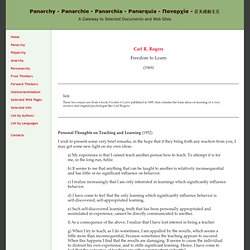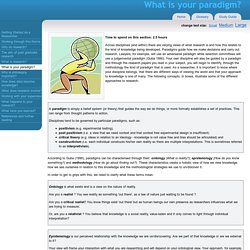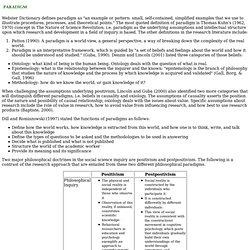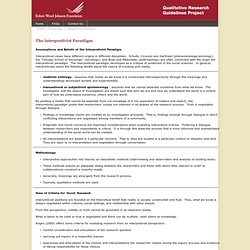

Files.eric.ed.gov/fulltext/ED384696.pdf#page=92. Www.dfki.de/EducationCHI2010/web/Schedule_files/EDUCATIONDonohue_et_al.pdf. Interview with Alan Webber, Fast Company & Rules of Thumb. Alan Webber is the founding editor of Fast Company.

Alan Webber and Fast Company have had a fundamental influence on my belief in Great Work—work that’s less hierarchical, more innovative, more creative, more design focused, more full of meaning and more engaging. Alan Webber has just published a fantastic book called Rules of Thumb: 52 Truths for Winning at Business Without Losing Your Self, which contains Alan’s wisdom and insights from 30 years in business. In our talk, Alan sheds light on his top rules of thumb from the book: Ask the last question first: what’s your definition of victory? How to create an a-ha moment to create a solution that actually worksKeep 2 lists: 1) What gets you up in the morning? Carl R. Rogers, Freedom to Learn (1969)
Personal Thoughts on Teaching and Learning (1952) I wish to present some very brief remarks, in the hope that if they bring forth any reaction from you, I may get some new light on my own ideas. a) My experience is that I cannot teach another person how to teach.

I am almost afraid I may seem to have gotten away from any discussion of learning, as well as teaching. Let me again introduce a practical note by saying that by themselves these interpretations of my experience may sound queer and aberrant, but not particularly shocking. It is when I realize the implications that I shudder a bit at the distance I have come from the commonsense world that everyone knows is right. A.) I think I had better to stop here. Regarding Learning and Its Facilitation (1969) How does a person learn? Ocw.metu.edu.tr/file.php/118/dale_audio-visual_20methods_20in_20teaching_1_.pdf. Web.mit.edu/5.95/readings/bloom-two-sigma.pdf. Dweck.pdf. Carol Dweck, Growth Mindsets and Motivation. Redirecting. Web.eecs.umich.edu/~baveja/Papers/FinalNIPSIMRL.pdf. What is your paradigm? Time to spend on this section: 2.5 hours Across disciplines (and within) there are varying views of what research is and how this relates to the kind of knowledge being developed.

Paradigms guide how we make decisions and carry out research. Lawyers, for example, will use an adversarial paradigm while selection committees will use a judgemental paradigm (Guba 1990). Your own discipline will also be guided by a paradigm and through the research papers you read in your subject, you will begin to identify, through the methodology the kind of paradigm that is used. As a researcher, it is important to know where your discipline belongs, that there are different ways of viewing the world and that your approach to knowledge is one of many. According to Guba (1990), paradigms can be characterised through their: ontology (What is reality?) In order to get to grips with this, we need to clarify what these terms mean. Research Paradigm. Webster Dictionary defines paradigm as "an example or pattern: small, self-contained, simplified examples that we use to illustrate procedures, processes, and theoretical points.

" The most quoted definition of paradigm is Thomas Kuhn's (1962, 1970) concept in The Nature of Science Revolution, i.e. paradigm as the underlying assumptions and intellectual structure upon which research and development in a field of inquiry is based. The other definitions in the research literature include: Patton (1990): A paradigm is a world view, a general perspective, a way of breaking down the complexity of the real world.
Paradigm is an interpretative framework, which is guided by "a set of beliefs and feelings about the world and how it should be understood and studied. " (Guba, 1990). When challenging the assumptions underlying positivism, Lincoln and Guba (2000) also identified two more categories that will distinguish different paradigms, i.e. beliefs in causality and oxiology. RWJF - Qualitative Research Guidelines Project. Assumptions and Beliefs of the Interpretivist Paradigm Interpretivist views have different origins in different disciplines.

Schultz, Cicourel and Garfinkel (phenomenology/sociology), the "Chicago School of Sociology" (sociology), and Boas and Malinowski (anthropology) are often connected with the origin the interpretivist paradigm. The interpretivist paradigm developed as a critique of positivism in the social sciences. In general, interpretivists share the following beliefs about the nature of knowing and reality. relativist ontology - assumes that reality as we know it is constructed intersubjectively through the meanings and understandings developed socially and experientially. transactional or subjectivist epistemology - assumes that we cannot separate ourselves from what we know. Findings or knowledge claims are created as an investigation proceeds. Methodology View of Criteria for 'Good' Research.
Positivist & Interpretivist. Positivist & Interpretivist.